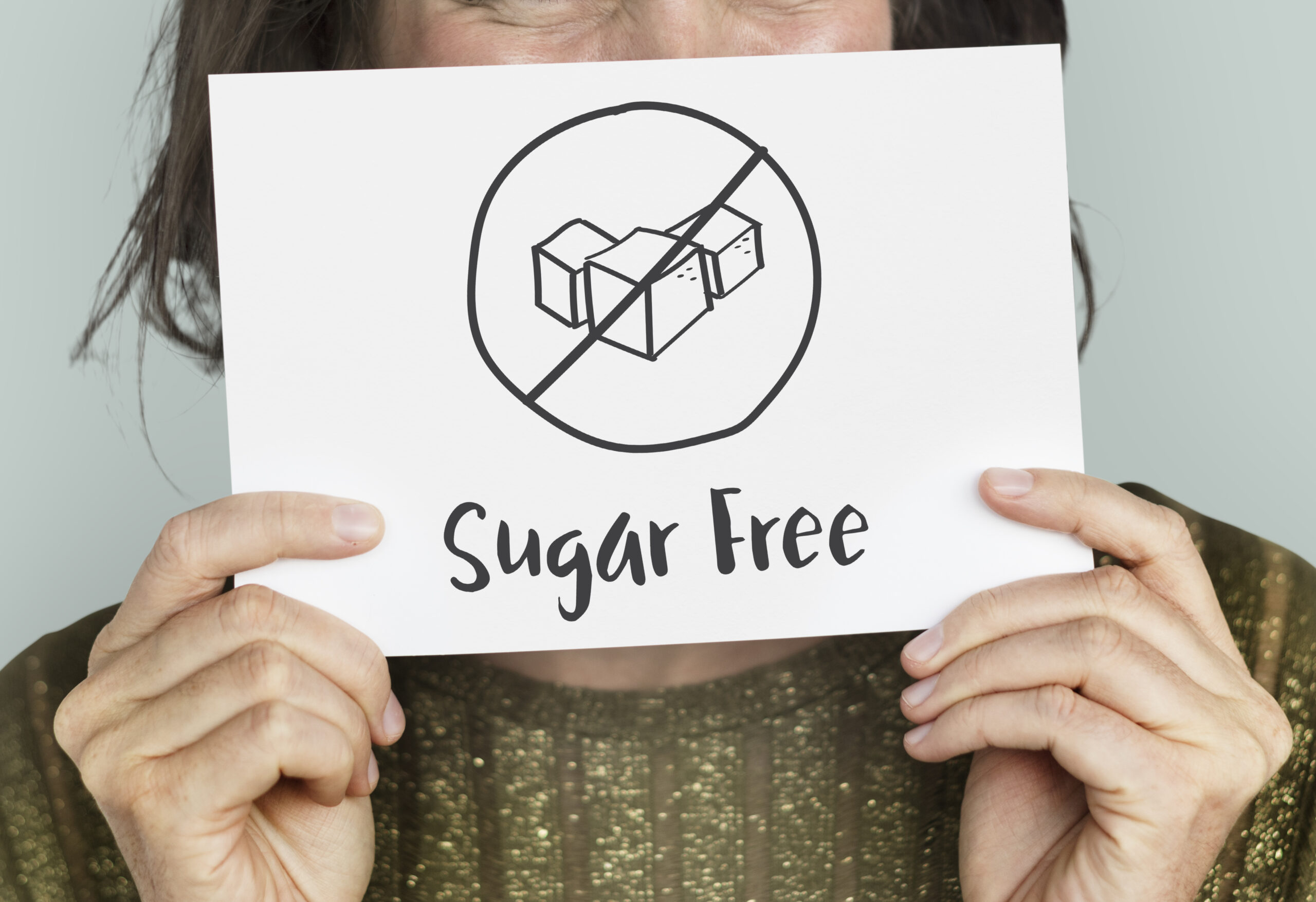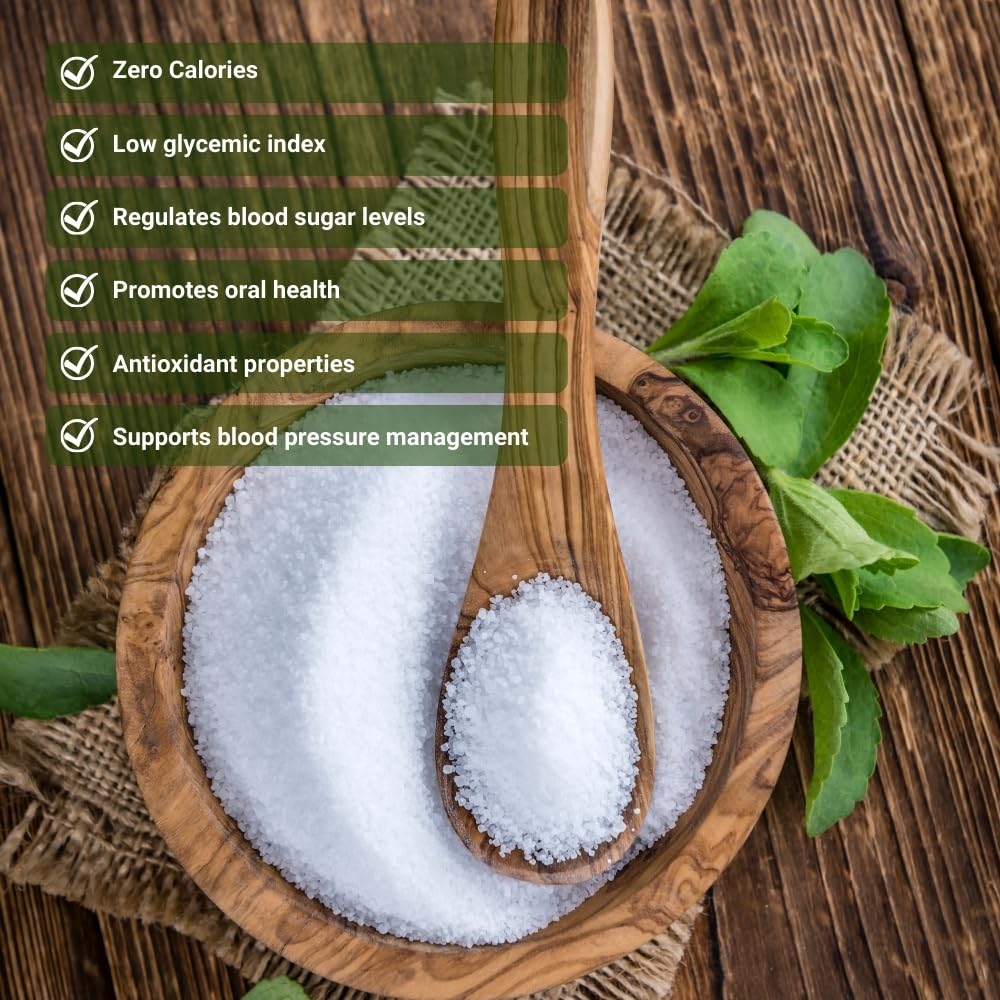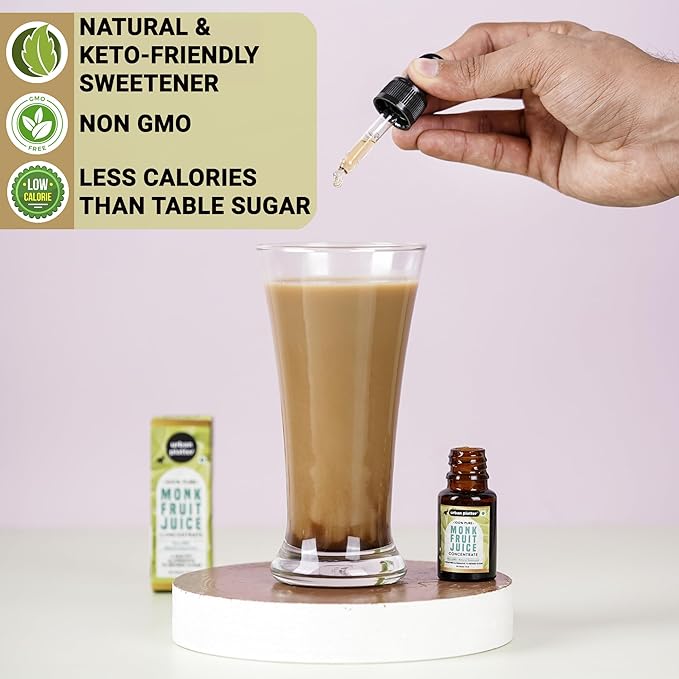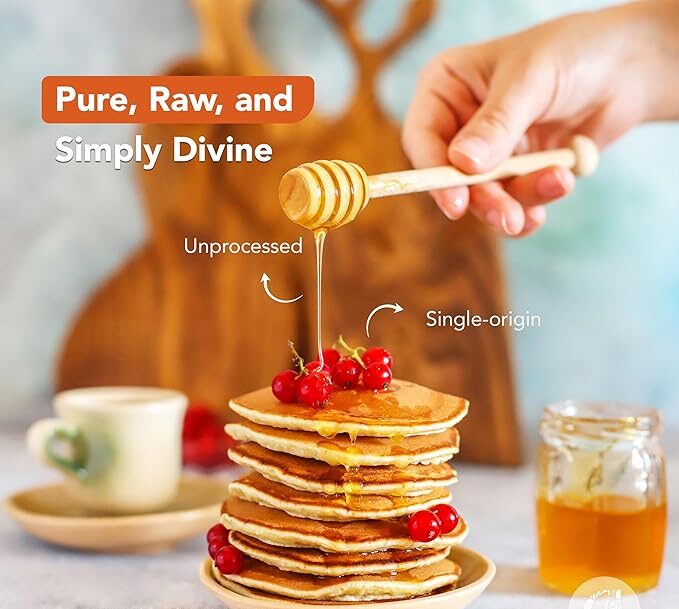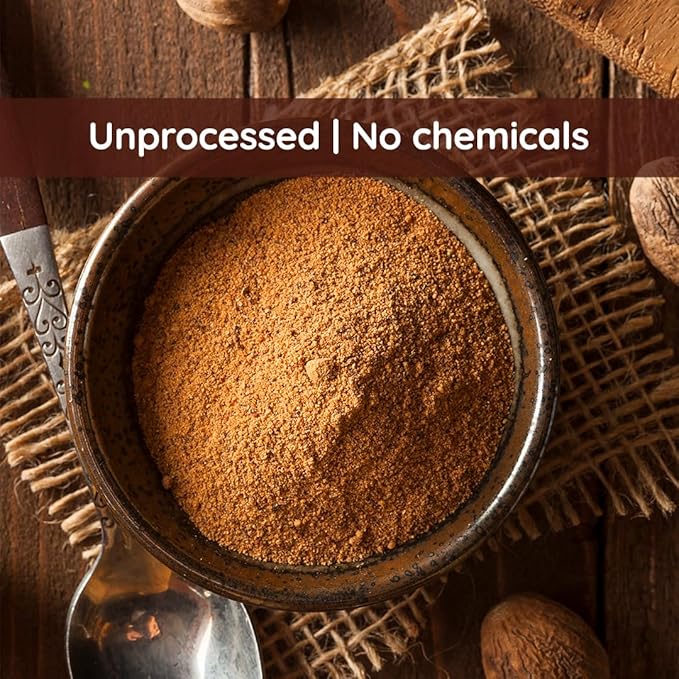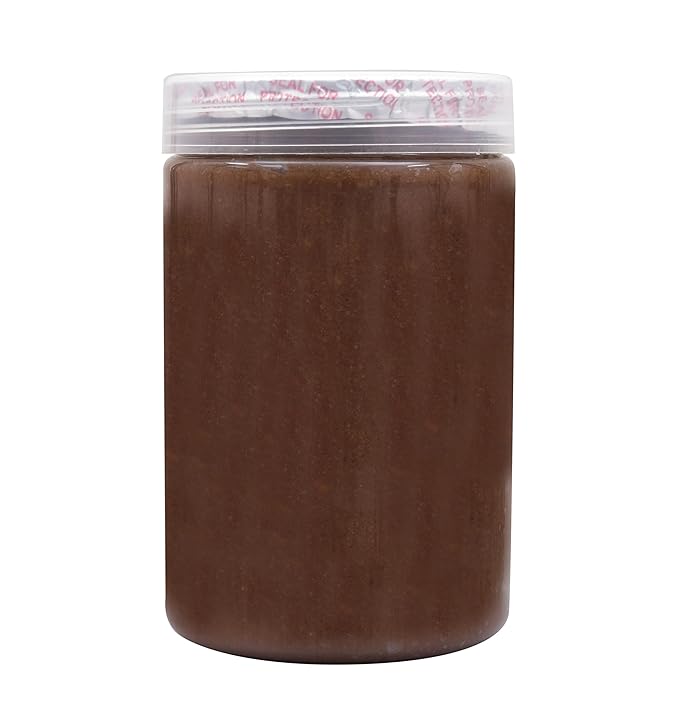Sugar is one of the most widely consumed ingredients in modern diets. While it adds sweetness, excessive consumption leads to serious health problems, including obesity, diabetes, heart disease, and mood swings. Reducing or eliminating it can transform energy levels, improve mental clarity, and promote overall well-being.
This comprehensive guide explores the impact of it on health, the benefits of a sugar-free lifestyle, the best alternatives, and practical ways to quit it without feeling deprived.
Table of Contents
The Negative Impact of Sugar on Health

How Sugar Affects Physical Health
Excess consumption contributes to multiple health issues:
Weight Gain – It leads to excess calorie intake, promoting fat storage.
Diabetes Risk – High intake increases insulin resistance, raising the risk of type 2 diabetes.
Heart Disease – Studies show that too much of it raises bad cholesterol levels, increasing heart disease risk.
Fatty Liver Disease – Excess of it, especially fructose, overloads the liver, leading to fat accumulation.
Weakened Immunity – High glucose levels suppress the immune system, making the body prone to infections.
Role of Sugar in Mental Health Issues
It doesn’t just affect physical health; it also impacts mental well-being. High consumption is linked to:
Mood Swings – Blood glucose spikes cause bursts of energy followed by crashes, leading to irritability.
Depression & Anxiety – Diets high in it disrupt neurotransmitter balance, increasing stress and anxiety.
Poor Memory – Studies show excessive consumption is linked to cognitive decline and brain fog.
Cutting back on it stabilizes energy and improves mental clarity, helping individuals feel happier and more focused.
Also Read: Ashwagandha for Mind and Body
Why a Sugar-Free Lifestyle is Beneficial
Stable Energy Without it
Many people rely on it for quick energy, but it actually causes more harm than good. It spikes blood glucose, leading to rapid crashes that leave individuals feeling exhausted. A sugar-free diet stabilizes energy by avoiding these fluctuations.
Sugar-Free Eating for Better Digestion
A diet high in it disrupts gut bacteria, leading to bloating and indigestion. Reducing it improves digestion, balances gut microbiome, and enhances nutrient absorption.
Sugar-Free Diet for Clear Skin
Excess glucose triggers inflammation, leading to acne, wrinkles, and premature aging. A sugar-free lifestyle reduces breakouts and enhances collagen production, promoting youthful skin.
How to Overcome Sugar Withdrawal Symptoms

What Happens When You Quit it?
When reducing or eliminating it, the body goes through an adjustment period. This can cause temporary withdrawal symptoms, such as:
Headaches – A common symptom as the body adjusts to stable blood glucose levels.
Fatigue – Energy levels may drop initially as the body switches from its dependency.
Cravings – Intense desire for it or processed carbs can occur during the first few weeks.
Irritability – Mood swings and frustration may arise as dopamine levels rebalance.
These symptoms usually last one to two weeks before the body stabilizes.
Ways to Manage Withdrawal
Increase Protein & Healthy Fats – These nutrients help control hunger and stabilize energy.
Stay Hydrated – Drinking plenty of water reduces headaches and cravings.
Get Enough Sleep – Proper rest prevents fatigue and mood swings.
Exercise Regularly – Physical activity releases endorphins, reducing irritability and cravings.
Use Natural Sweeteners – Stevia, monk fruit, or cinnamon can help ease the transition.
How Long Does It Take to Adjust?
Most people notice significant improvement within 10-14 days. After a month, cravings decrease, and energy levels become more stable. The lifestyle soon feels effortless, making it easier to maintain long-term.
Also Read: Khajur Wonders (Dates)
Best Alternatives for a Healthy Diet
Quitting it doesn’t mean giving up sweetness. There are several natural and artificial sweeteners that provide flavor without the harmful effects of refined sugar.
Natural Substitutes
Stevia – A plant-based sweetener with zero calories, perfect for drinks and baking.
Monk Fruit – A natural sweetener rich in antioxidants, ideal for teas and desserts.
Raw Honey – A nutrient-dense alternative to refined sugar, but should be used in moderation.
Coconut Sugar – A minimally processed sweetener with a lower glycemic index than regular sugar.
Date Paste – A natural, fiber-rich sweetener made from blended dates.
Artificial Sweeteners – Are They Safe?
Artificial sweeteners like aspartame, sucralose, and saccharin provide sweetness without calories. However, long-term studies suggest they may disrupt gut health. While they can be used occasionally, natural alternatives are a better choice for long-term health.
How to Maintain Energy Without it
Eat Nutrient-Dense Foods
Instead of relying on it, choose whole foods that provide sustained energy:
Complex Carbohydrates – Whole grains, oats, and quinoa offer slow-releasing energy.
Healthy Fats – Avocados, nuts, and seeds keep you full longer.
Lean Proteins – Eggs, chicken, and legumes prevent energy crashes.
Stay Hydrated and Exercise Regularly
Many people mistake thirst for its cravings. Drinking water, herbal teas, or lemon-infused water prevents unnecessary snacking. Regular exercise also stabilizes blood glucose, reducing cravings.
Also Read: Fantastic Giloy
Practical Ways to Reduce Sugar Intake
Read Labels to Identify Hidden Sugars
Many packaged foods contain hidden sugary content under different names, such as:
High-fructose corn syrup
Dextrose
Maltose
Cane juice
Checking ingredient lists helps avoid excessive consumption.

Choose Whole Foods Over Processed Ones
Whole foods like fresh vegetables, fruits, and homemade meals help prevent excessive intake. Cooking at home ensures better control over ingredients.
Replace Sugary Drinks with Healthy Alternatives
Sugary beverages increase its consumption without providing nutrients. Instead, choose:
Herbal teas
Infused water with lemon or mint
Unsweetened coffee or tea
These options keep you hydrated while preventing energy crashes.
Sugar-Free Meal Plan and Snack Ideas
Breakfast Ideas
Scrambled eggs with avocado and spinach
Oatmeal with chia seeds and cinnamon
Greek yogurt with nuts and berries
Lunch & Dinner Ideas
Grilled chicken with quinoa and roasted vegetables
Stir-fried tofu with broccoli and brown rice
Lentil soup with whole-grain toast
Healthy Snacks

Also Read: Anjeer Feast (Figs)
FAQs
What are the biggest sources of hidden sugar?
It is found in flavored yogurts, cereals, dressings, and packaged snacks. Always read labels to check for added sugar content.
How can I reduce its cravings?
Eat protein-rich meals, drink plenty of water, and use natural sugar alternatives to control cravings.
Will cutting it improve my sleep?
Yes, eliminating it prevents blood glucose fluctuations, leading to deeper, more restful sleep.
Is honey better than it?
Raw honey has some benefits, but it still raises blood glucose levels. Use it in moderation.
Also Read: Jaggery Love
Final Thoughts
Eliminating it improves energy, mood, and long-term health. By choosing whole foods and natural alternatives, you can enjoy a sugar-free lifestyle without feeling deprived.
Start small by replacing refined sugar with healthier options, drinking more water, and choosing nutrient-dense meals. Over time, these habits will help you feel more energized and happy.

